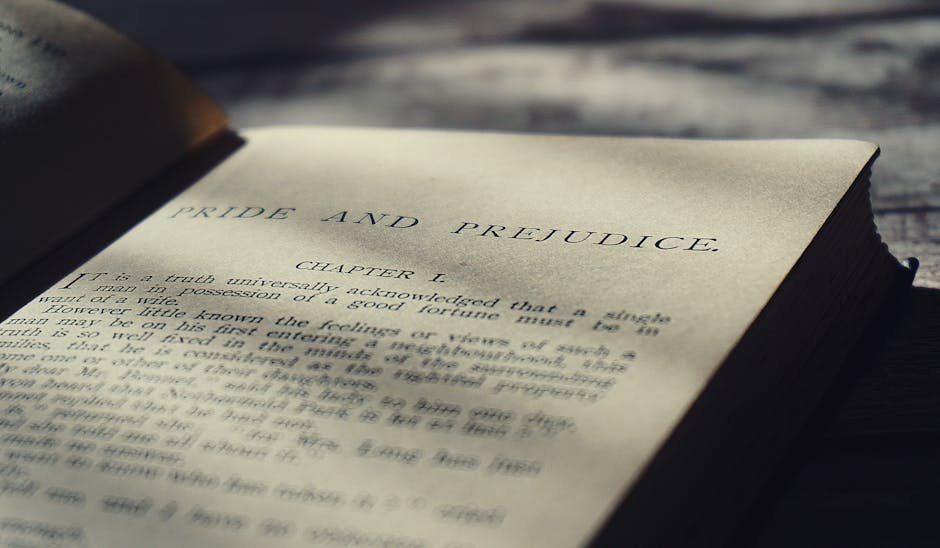Jane Austen: A Timeless Exploration of Love, Class, and Society
The Enduring Legacy of Jane Austen
Jane Austen, a name synonymous with wit, social commentary, and enduring romance, continues to captivate readers centuries after her death. Born in Steventon, Hampshire, in 1775, Austen’s life, though relatively quiet, yielded a body of work that remains remarkably relevant and profoundly insightful into the complexities of human relationships and societal structures. Her six completed novels – Sense and Sensibility, Pride and Prejudice, Mansfield Park, Emma, Northanger Abbey, and Persuasion – offer a nuanced and often satirical portrayal of English society during the Regency era, exploring themes of love, marriage, class, and social mobility with unparalleled wit and precision.

A World of Social Commentary: Class and Society in Austen’s Novels
Austen’s novels are far more than simply romantic tales; they are incisive social commentaries that expose the rigid class system of 19th-century England. The pursuit of advantageous marriages, often driven by economic necessity, is a central theme. Characters constantly navigate the complexities of social hierarchies, striving for upward mobility or maintaining their position within the established order. The stark contrast between the landed gentry and the less affluent classes is evident in the varying lifestyles, opportunities, and social constraints faced by her characters. Austen expertly depicts the social pressures and expectations placed upon women, highlighting the limited options available to them within this restrictive society.

Marriage as a Social Contract
Marriage in Austen’s world is not merely a matter of romantic love; it’s a crucial social and economic contract. For women, marriage often represented the only path to financial security and social standing. Austen subtly critiques the societal pressures that compelled women into marriages based on financial stability rather than genuine affection. Her novels explore the consequences of such pragmatic unions, juxtaposing them with the joys and challenges of marriages founded on mutual respect and love.
The Power Dynamics of Gender
Austen’s sharp observations extend to the power dynamics inherent in the patriarchal society of her time. Women possessed limited legal and financial rights, and their lives were largely dictated by social conventions and expectations. Through her characters, Austen exposes the limitations and frustrations experienced by women navigating this restrictive environment. She demonstrates how women, despite their constraints, exercise agency and find ways to exert influence within their constrained spheres. The strength and resilience of her female characters are often masked by social decorum but are nonetheless powerful and enduring.

The Enduring Appeal of Austen’s Heroines
One of the key reasons for Austen’s lasting popularity lies in her compelling female characters. Each heroine is distinct, possessing unique strengths and flaws that make them relatable and engaging. Elizabeth Bennet’s spirited independence in Pride and Prejudice, Emma Woodhouse’s initial self-assuredness and subsequent growth in Emma, and Anne Elliot’s quiet resilience in Persuasion resonate with readers across generations. Austen’s heroines are not perfect; they make mistakes, learn from their experiences, and ultimately evolve into stronger and more self-aware individuals.
Beyond the Romantic Ideal: Complexity of Character
Austen skillfully avoids the simplistic portrayal of good versus evil. Her characters are complex and multi-faceted, exhibiting both positive and negative traits. Even the antagonists often possess redeeming qualities or understandable motivations. This nuanced characterization adds depth and realism to her narratives, making them relatable and emotionally resonant. The protagonists are not always flawless, but their flaws often contribute to their growth and development throughout the story.
The Wit and Irony of Austen’s Prose
Austen’s masterful use of wit and irony is a hallmark of her writing style. Her sharp observations of human behavior are delivered with subtle humor and understated sarcasm, often leaving the reader to draw their own conclusions. This subtle approach keeps the narrative engaging and thought-provoking. She uses free indirect discourse masterfully to reveal her character’s inner thoughts and motivations without explicit exposition.
The Social Satire: A Subtle but Powerful Tool
Austen’s social satire is never heavy-handed; instead, it is woven seamlessly into the fabric of the narrative. Through witty dialogue and astute observations, she exposes the hypocrisies and absurdities of the social conventions of her time. This subtle critique makes her work both entertaining and intellectually stimulating, allowing readers to engage with the social commentary on multiple levels.
The Lasting Influence of Jane Austen
Jane Austen’s influence on literature and popular culture is undeniable. Her novels have been adapted countless times for the stage and screen, consistently finding new audiences across generations. Her works continue to inspire writers, filmmakers, and artists, shaping our understanding of character development, narrative structure, and social commentary. The enduring appeal of her novels lies in their ability to explore timeless themes of love, relationships, and social dynamics in a manner that is both insightful and entertaining.
Adaptations and Interpretations
From the classic BBC adaptations of her novels to more contemporary interpretations, Austen’s work continues to be reimagined for modern audiences. These adaptations often reflect the cultural sensibilities of their time, highlighting the enduring relevance of Austen’s themes and characters. The consistent popularity of these adaptations underscores the timeless appeal of her stories.
Austen’s Continuing Relevance in the 21st Century
Despite being written over two centuries ago, Jane Austen’s novels remain strikingly relevant in the 21st century. The themes she explores – social class, gender inequality, the complexities of relationships – continue to resonate with contemporary readers. Her witty observations on human nature and social dynamics transcend time and place, offering valuable insights into the enduring challenges and triumphs of human experience. Her works serve as a reminder that certain aspects of human nature and social interaction remain constant, even as the world around us changes.
Exploring Further: Resources for Austen Enthusiasts
For readers wishing to delve deeper into the world of Jane Austen, numerous resources are available. Scholarly works provide in-depth analysis of her novels, while biographies offer insights into her life and creative process. Museums and historical sites dedicated to Austen offer immersive experiences for enthusiasts. Online forums and communities provide opportunities for discussion and engagement with fellow Austen fans.
- The Jane Austen Centre (Bath, England)
- Chawton House Library (Chawton, England)
- Numerous scholarly articles and books on Jane Austen and her work
- Online communities and discussion forums dedicated to Jane Austen
In conclusion, Jane Austen’s enduring legacy rests not only on her compelling narratives and unforgettable characters but also on her astute social commentary and timeless exploration of human nature. Her novels continue to captivate and inspire readers centuries later, ensuring her place as one of the most significant and influential authors in English literature.



